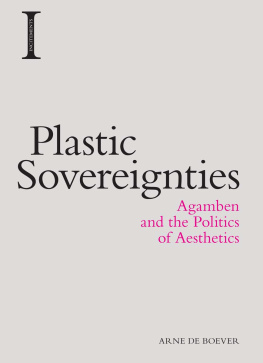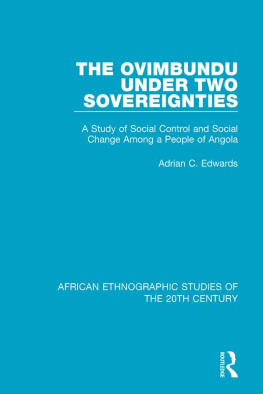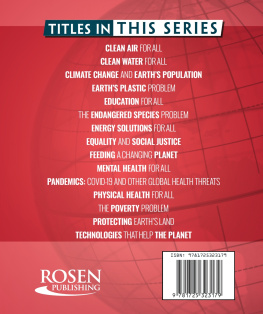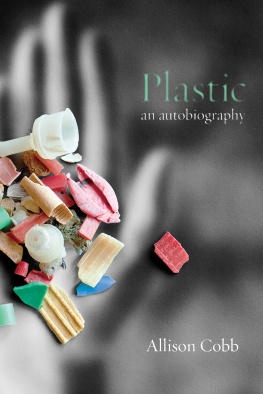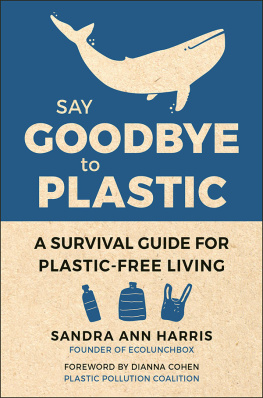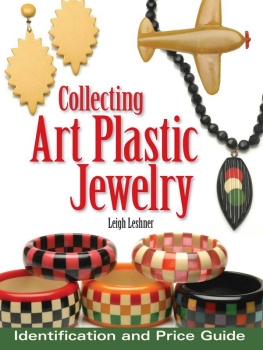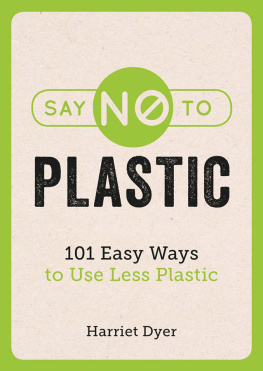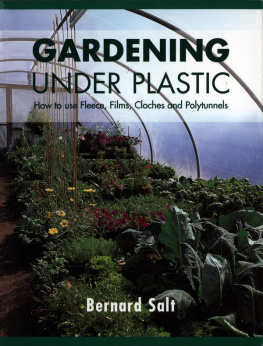De Boever - Plastic Sovereignties
Here you can read online De Boever - Plastic Sovereignties full text of the book (entire story) in english for free. Download pdf and epub, get meaning, cover and reviews about this ebook. publisher: Edinburgh University Press, genre: Politics. Description of the work, (preface) as well as reviews are available. Best literature library LitArk.com created for fans of good reading and offers a wide selection of genres:
Romance novel
Science fiction
Adventure
Detective
Science
History
Home and family
Prose
Art
Politics
Computer
Non-fiction
Religion
Business
Children
Humor
Choose a favorite category and find really read worthwhile books. Enjoy immersion in the world of imagination, feel the emotions of the characters or learn something new for yourself, make an fascinating discovery.
Plastic Sovereignties: summary, description and annotation
We offer to read an annotation, description, summary or preface (depends on what the author of the book "Plastic Sovereignties" wrote himself). If you haven't found the necessary information about the book — write in the comments, we will try to find it.
Plastic Sovereignties — read online for free the complete book (whole text) full work
Below is the text of the book, divided by pages. System saving the place of the last page read, allows you to conveniently read the book "Plastic Sovereignties" online for free, without having to search again every time where you left off. Put a bookmark, and you can go to the page where you finished reading at any time.
Font size:
Interval:
Bookmark:

Incitements
Series editors: Peg Birmingham, DePaul University and Dimitris Vardoulakis, University of Western Sydney
An incitement is a thought that leads to a further thought or an action that solicits a response, while also testing the limits of what is acceptable or lawful. The books in this series, by prominent, world class scholars, will highlight the political import of philosophy, showing how concepts can be translated into political praxis, and how praxis is inextricably linked to thinking.
Editorial Advisory Board
tienne Balibar, Andrew Benjamin, Jay M. Bernstein, Rosi Braidotti, Wendy Brown, Judith Butler, Adriana Cavarero, Howard Caygill, Rebecca Comay, Joan Copjec, Simon Critchley, Costas Douzinas, Peter Fenves, Christopher Fynsk, Moira Gatens, Gregg Lambert, Leonard Lawlor, Genevieve Lloyd, Catherine Malabou, James Martel, Christoph Menke, Warren Montag, Michael Naas, Antonio Negri, Kelly Oliver, Paul Patton, Anson Rabinbach, Gerhard Richter, Martin Saar, Miguel Vatter, Gianni Vattimo, Santiago Zabala
Available
Return Statements: The Return of Religion in Contemporary Philosophy
By Gregg Lambert
The Refusal of Politics
By Laurent Dubreuil, translated by Cory Browning
Plastic Sovereignties: Agamben and the Politics of Aesthetics
By Arne De Boever
From Violence to Speaking Out: Apocalypse and Expression in Foucault, Derrida and Deleuze
By Leonard Lawlor
Forthcoming
Agonistic Mourning: Political Dissidence and the Women in Black
By Athena Athanasiou
Plastic Sovereignties
Agamben and the Politics of Aesthetics
Arne De Boever

Edinburgh University Press is one of the leading university presses in the UK. We publish academic books and journals in our selected subject areas across the humanities and social sciences, combining cutting-edge scholarship with high editorial and production values to produce academic works of lasting importance. For more information visit our website: edinburghuniversitypress.com
Arne De Boever, 2016
Edinburgh University Press Ltd
The Tun Holyrood Road, 12(2f) Jacksons Entry, Edinburgh EH8 8PJ
A CIP record for this book is available from the British Library
ISBN 978 0 7486 8499 1
The right of Arne De Boever to be identified as the author of this work has been asserted in accordance with the Copyright, Designs and Patents Act 1988, and the Copyright and Related Rights Regulations 2003 (SI No. 2498).
I decided it would be worthwhile publishing this book partly in response to some comments I received on my books of literary criticism, comments that suggested the theoretical focus of those books and in particular their political theoretical focus was underdeveloped. Indeed, the writerly project of the books of literary criticism was to work out as much as possible the theoretical references so as to let the literary works do that thinking and more for us, as literary-political thought. Over the years, however, it has also begun to seem useful to me to articulate the political theoretical focus of my work in literary criticism in the form of a book, as a way of clarifying my position in a time when it has come to seem less and less fashionable but more and more meaningful.
Rather than providing the reader with a chapter-by-chapter narrative outlining the progressive argument of the book, I have tried to weave the major concerns that are addressed in the following chapters into my first chapter. Some parts of this book were written as early as 2005, and sections from most of the chapters have appeared in journal articles or book chapters (some difficult to access, some only available in French) that I have published since then: in the journals Azimuth and Cahiers ). All of the previously published work reappears here in an entirely different context and as a result has been thoroughly revised. Embarrassing mistakes have been edited out but Im sure many remain.
This book has been in progress for a long time, and during all the years that I have been at work on it I have been blessed with a great number of interlocutors, many of them critical readers of Agamben. I would like to extend my thanks, as always, to Bruce Robbins, Stathis Gourgouris, and Patricia Dailey at Columbia University; the students and faculty of the second Seminar in Experimental Critical Theory (SECT) at the University of California, Irvine, in particular Imogen Bunting and Anna Kornbluh (thanks also to Anna for inviting me to present a part of in the InterCcECT group in March 2015); the students and faculty of the summer 2006 School of Criticism and Theory (SCT) at Cornell University, in particular my seminar leader, Eric Santner, and Maria Boletsi, Brent Edwards, Anne-Lise Franois, Nick Heron, Alysia Garrison, MLE Wilbourne, and Hiie Saumaa; and the participants of the 20078 Paris Program in Critical Theory, in particular its director, Samuel Weber, as well as Laura Reagan and Crina Archer.
None of this would have been written without the generous support of the Belgian American Educational Foundation, the Francqui Foundation, and Columbia Universitys Graduate School of Arts and Sciences (GSAS). I am grateful to GSAS for the two years of summer funding that enabled me to attend SECT and SCT, and for the 20078 Reid Hall Fellowship that made it possible for me to participate in the Paris Program in Critical Theory.
This book was completed while I was teaching in the School of Critical Studies at the California Institute of the Arts, one of the few places in the United States where theory is still very much alive. I am particularly grateful to my colleague Martn Plot, first-rate theorist of the aesthetico-political, as well as to the students who worked through Agambens writings with me in my undergraduate (!) and graduate seminars on Agamben, biopolitics, and the care of the self. Judith Butlers residency in the MA Aesthetics and Politics program at CalArts provided a late inspiration for the completion of the manuscript.
I owe a special thanks to Eduardo Cadava and Brent Edwards, who joined my dissertation committee for the defense and suggested I bring my thoughts on sovereignty together under the title contesting sovereignties it is this suggestion that ultimately lead to the central concept of this book; to Catherine Malabou, for discussing plasticity and Agambens work with me in Paris, Los Angeles, and at UC Berkeley; to Jason Smith, for inviting me to present some of my thoughts on Rancire at the Art Center College of Design; to rik Bullot, for inviting me to present my work on Agamben at the European School for Visual Arts in Angoulme; to Jean-Hugues Barthlmy, for supporting and translating my work on Agamben and Simondon; to my co-editors at Parrhesia: A Journal of Critical Philosophy, Alex Murray, Jon Roffe, and Ashley Woodward, for welcoming me into the philosophical fold.
I can only hope that you wont hold the wildness of this book against me.
| B | No to Biopolitical Tattooing [2004], available at: . |
| C | Quest-ce que le commandement? Trans. Jol Gayraud.Paris: Bibliothques Rivages, 2013. |
| CC | The Coming Community. Trans. Michael Hardt. Minneapolis: University of Minnesota Press, 1990. |
| HP | The Highest Poverty: Monastic Rules and Form-Of-Life. |
Font size:
Interval:
Bookmark:
Similar books «Plastic Sovereignties»
Look at similar books to Plastic Sovereignties. We have selected literature similar in name and meaning in the hope of providing readers with more options to find new, interesting, not yet read works.
Discussion, reviews of the book Plastic Sovereignties and just readers' own opinions. Leave your comments, write what you think about the work, its meaning or the main characters. Specify what exactly you liked and what you didn't like, and why you think so.

